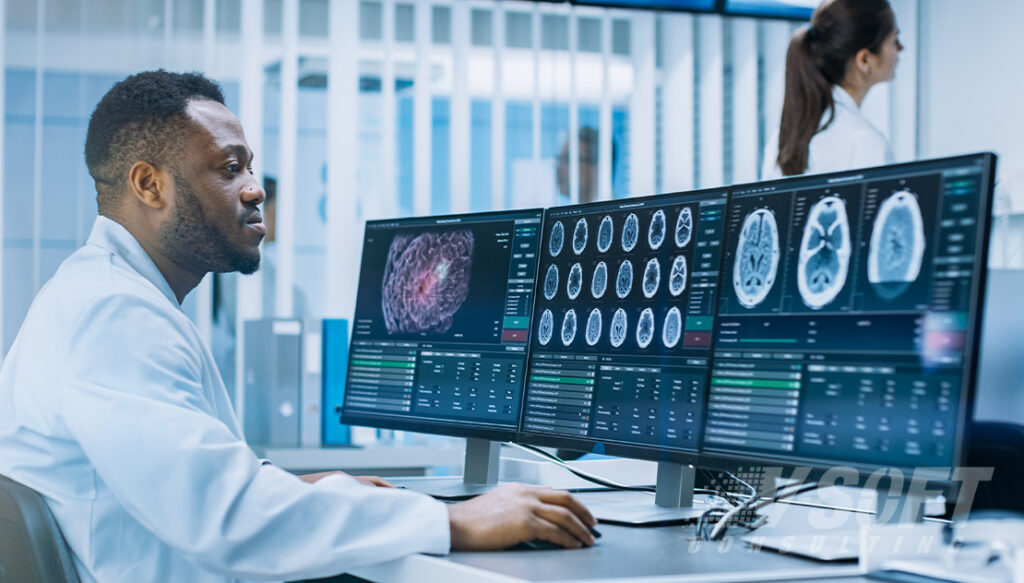
Artificial Intelligence (AI) is becoming increasingly prevalent in the healthcare industry. It is being used to improve patient care, reduce costs, and make healthcare more efficient. One of the primary uses of AI in healthcare is in medical imaging. AI algorithms are being developed to analyze medical images, such as X-rays, CT scans, and MRIs, and assist radiologists in diagnosing conditions.
AI is also being used in drug development. It can help researchers identify potential drug targets, analyze substantial amounts of data, and predict how a drug will interact with the body. AI is also being used in clinical trials to identify eligible participants and monitor their progress.
Another use of AI in healthcare is in personalized medicine. By analyzing a patient’s medical history, genetic data, and other relevant information, AI algorithms can help doctors develop personalized treatment plans that are tailored to the patient’s unique needs.
AI is also being used in administrative tasks, such as scheduling appointments and managing patient records. This can help reduce the administrative burden on healthcare professionals, allowing them to focus more on patient care.
However, there are some challenges associated with the use of AI in healthcare. One of the biggest challenges is ensuring the accuracy and reliability of AI algorithms. There is also a concern about the potential for AI to replace healthcare professionals, which could have significant ethical and societal implications.
In conclusion, AI is being used in a variety of ways to improve healthcare. While there are some challenges to overcome, the potential benefits of AI in healthcare are significant, and it is likely that we will see even more use of AI in healthcare in the future.

